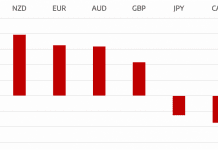While some crypto proponents argue that regulation undermines the core tenets of decentralization, there is a growing consensus that striking a balance between innovation and safety is imperative for DeFi’s continued growth. Concordium, a blockchain platform that pioneers comprehensive regulatory compliance through Concordex, its decentralized exchange (DEX), explores the multifaceted challenges in the space of DeFi.

The meteoric rise of Decentralized Finance (DeFi) has reshaped the financial landscape, challenging traditional systems and empowering individuals with unprecedented financial autonomy. Yet, as DeFi matures, the need for sensible regulation becomes increasingly apparent.
Concordex, built on the Concordium blockchain, offers a regulated DeFi experience with advanced liquidity provision features. It prioritizes innovation while upholding the highest regulatory standards.
But first, let’s delve into the challenges in DeFi:
Liquidity Issues: DeFi has struggled with liquidity problems, resulting in unstable liquidity levels on various protocols. Users frequently shift between platforms in pursuit of better rewards, leading to liquidity instability. Regulatory involvement can attract institutional investors, injecting much-needed capital and expertise into the DeFi space to stabilize liquidity.
Non-existent Investor Protection: DeFi’s rapid growth has attracted fraudulent actors, resulting in substantial losses due to exploits and hacks. Sensible regulation can establish guidelines to protect investors from scams and market manipulation. Legal clarity can entice institutional investors, giving them confidence in their rights and responsibilities within DeFi.
Systemic Risks: DeFi carries systemic risks, such as vulnerabilities in smart contracts and potential failures of interconnected platforms. Regulated DeFi can enforce security standards, enhancing user trust and mitigating systemic failures.
Lack of AML and KYC: Anti-money laundering (AML) and Know Your Customer (KYC) measures are critical to prevent illicit activities in DeFi. Concordium’s Concordex addresses this challenge through its blockchain-based identity credentials and innovative use of zero-knowledge proofs (ZKPs), ensuring regulatory compliance while maintaining user privacy.
Concordium’s regulation-ready approach
Concordium’s unique design embeds identity at the protocol level, combining blockchain technology with zero-knowledge proofs (ZKPs) to strike a balance between privacy and regulatory compliance. ZKPs keep user data private and off-chain, with the ability to enable identification at the request of regulators through the Anonymity Revoker, ensuring accountability.
By maintaining open communication with policymakers and adapting to evolving regulations, Concordex positions itself as a leader in compliant DeFi practices.
HedgeThink.com is the fund industry’s leading news, research and analysis source for individual and institutional accredited investors and professionals





































